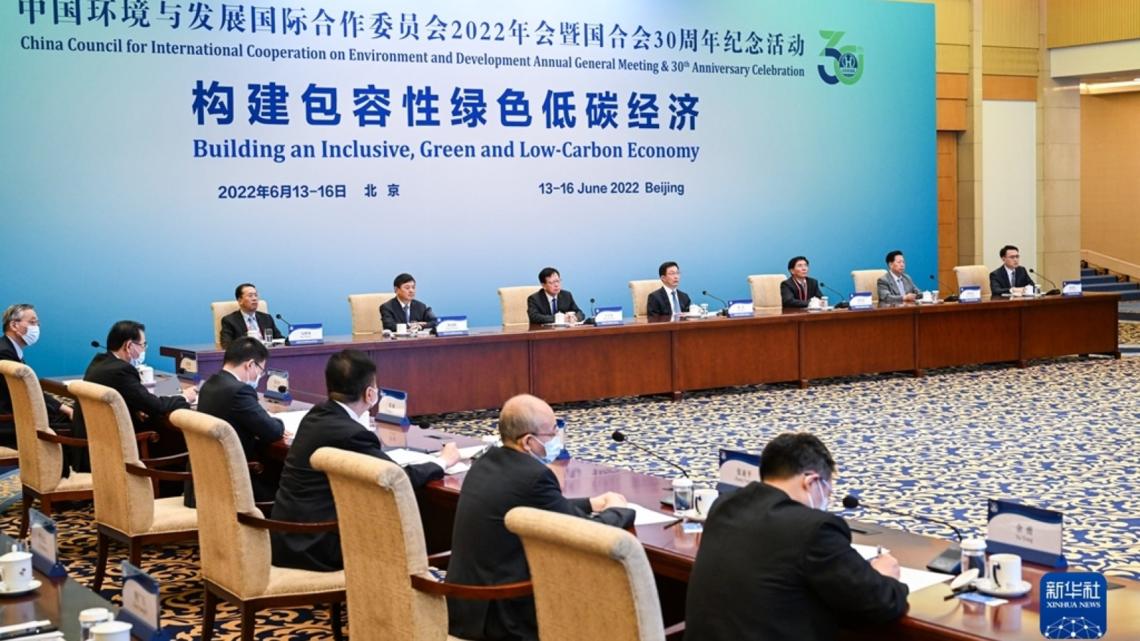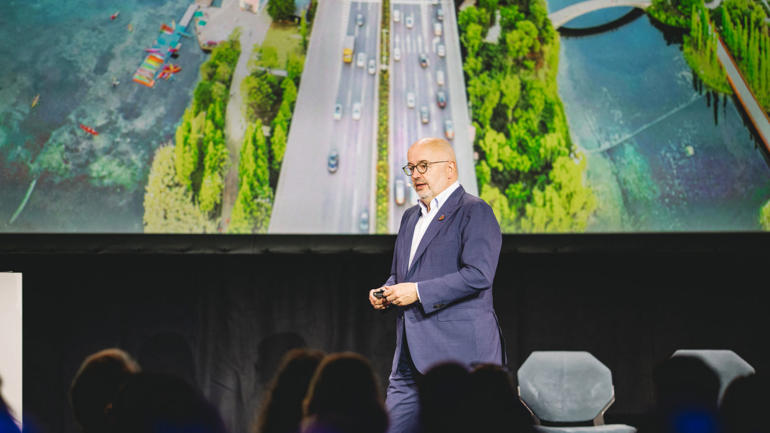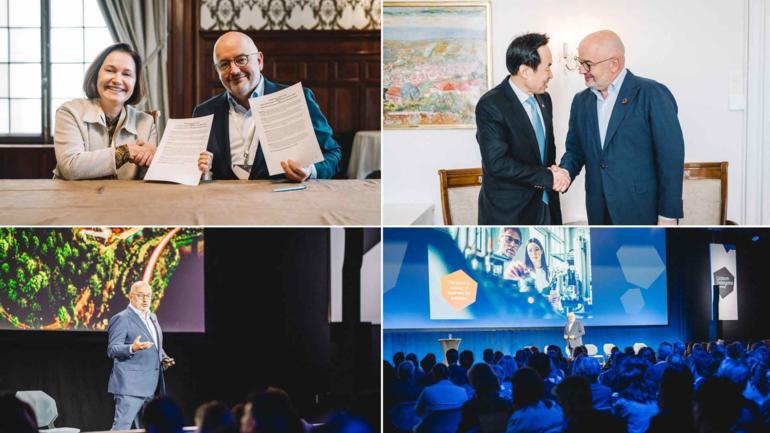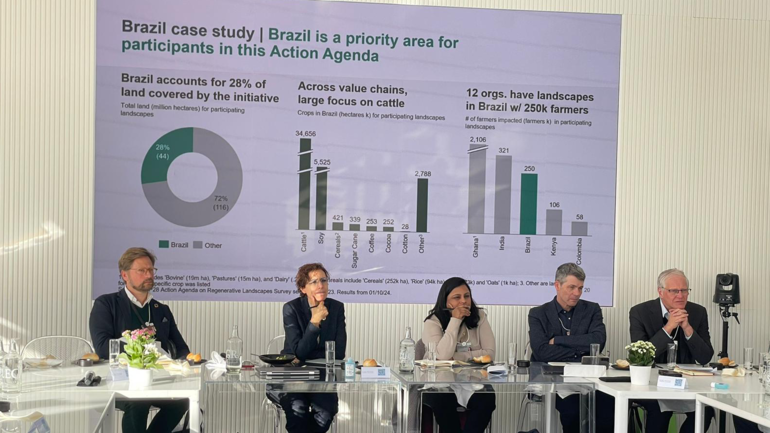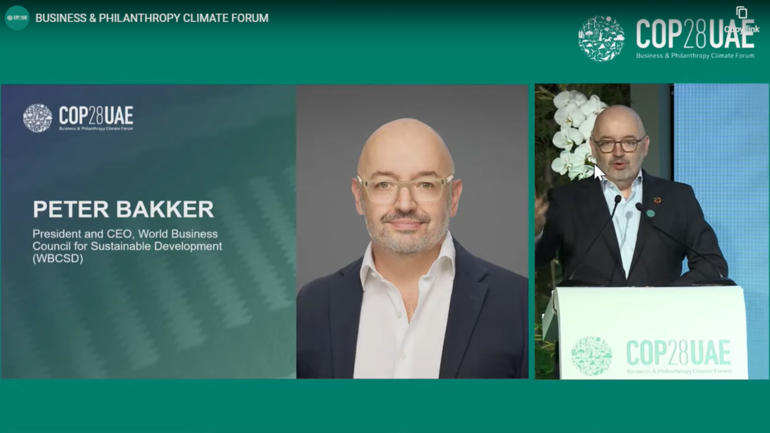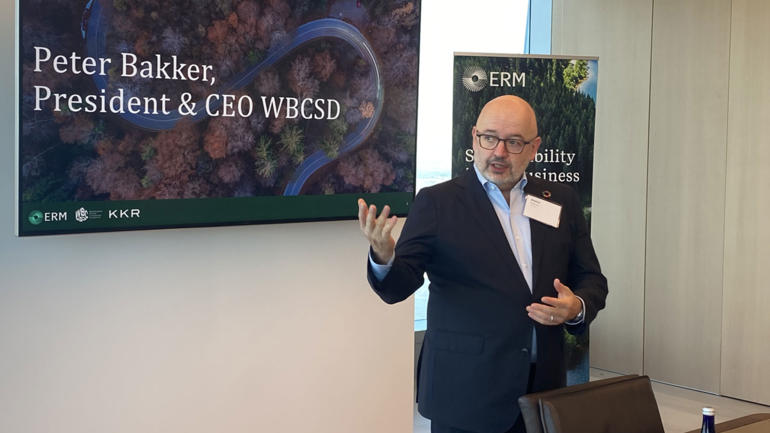Established in 1992, the China Council for International Cooperation on Environment and Development (CCICED) is a high-level, non-profit, international advisory body in the field of environment and development for the Government of China.
During its Annual General Meeting on 13-16 June, the China Council celebrated its 30th anniversary. On the theme of “Building an Inclusive, Green and Low-Carbon Economy”, this meeting served to at the same time look back at 30 years of international cooperation on environment and development in China, and to path the way for the next decades of work. In this optic, the key outcomes and impact of CCICED’s work until its Phase VI (2017-2021) were presented (including the notable inclusion of “ecological civilization” in China’s constitution in 2018), and its new Phase VII (2022-2026) was also launched.
I was invited by Mr Huang Runqiu, Minister of Ecology and Environment, China and Executive Vice Chairperson of CCICED, to continue my role as CCICED International Council Member for its Phase VII – and I am honored to do so, to represent the global voice of business action.
Over the last years in my role of International Council Member, and additionally, in my role of Convener of the Advisory Committee of the Belt and Road Initiative International Green Development Coalition (BRIGC), I have provided input and recommendations on the opportunities, challenges, and paths for a greener China.
This includes remarks as part of the closing session of the CCICED Annual General Meeting on 16 June 2022. In the presence of Vice Premier Han Zheng and Minister of Ecology and Environment Huang Runqiu, I congratulated CCICED for their 30 years of international cooperation on environment and development, presented WBCSD’s history in China and sketched a shared vision for the way forward. In these times of growing difficulties in international collaboration between China and some other key economies, I wish to express the hope that on the topics of critical concern to Humanity – the Climate Emergency, Loss of Nature and Mounting Inequality – we will be able to continue to work closely together.
WBCSD has a decade-long relationship with CCICED. We have worked closely together on emerging topics including biodiversity loss and climate change, corporate social responsibility and reporting, environmental risk management, and the leading role of business in green transformation. We also have been working with our Global Network partner China Business Council for Sustainable Development (CBCSD) since 2003, as well as with partners such as the State-Owned Assets Supervision and Administration Commission (SASAC) and China Enterprise Confederation (CEC). And of course, we’ve been working with Chinese (member) companies since 1996, including Sinopec, COFCO, SPIC, State Grid, and Baowu Group.
Sustainability is now going mainstream for governments, business, consumers, and financial markets. In October, WBCSD presented its Strategy 2022-2027, which is designed to step up and focus our work to support business action for the system transformations needed for a zero-carbon, nature-positive, equitable future, in line with Vision 2050: Time to Transform.
At COP26, WBCSD launched the Business Manifesto for Climate Recovery, calling for a new Corporate Determined Contributions (CDCs) mechanism to measure the private sector’s contribution to global climate recovery. We would like to cooperate with Chinese businesses in tackling climate change, reducing pollution and carbon emissions, improving carbon emissions trading market, and exploring ways to realize the carbon-neutral goal.
We will continue to strengthen our cooperation with CCICED, take part in the Special Policy Studies, and support the formulation of Annual Policy Recommendations. We will offer insights and support on the transparency of carbon emissions and Chinese businesses’ engagement in addressing the climate emergency. We also look forward to engaging Chinese businesses to actively participate in the CBD COP15 and UNFCCC COP27. Moreover, we look forward to providing active support in aligning the ESG developments of China with the ones in the rest of the world. China has been stepping up in its efforts to peak emissions before 2030 and achieve carbon neutrality before 2060. The crucial role of business in realizing such an inclusive, green, low-carbon world should be recognized and supported, to support China in its continuous pursuit of a greener future.
Once again, I would like to congratulate CCICED on its 30th anniversary – we have witnessed remarkable achievements in tackling the most pressing sustainability challenges and advancing inclusive, green and low-carbon development in China, and are looking forward to working closely together to advance sustainable development in China and beyond.

